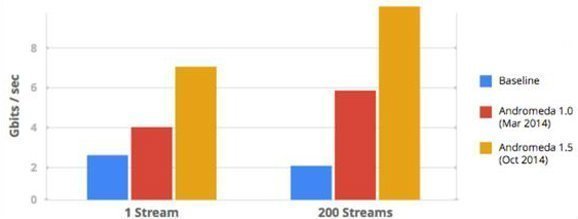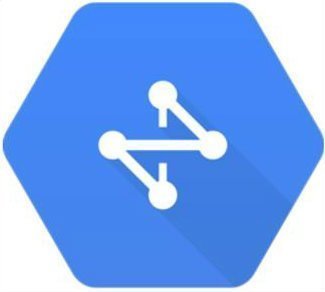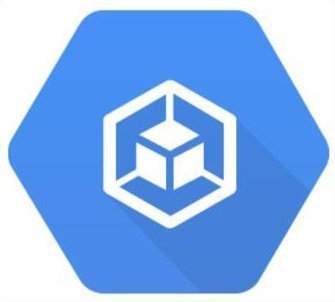Google joins enterprise cloud battle with additions to its cloud platform
Google made a raft of announcements at its GCP Live event, including enhancements to its networking stack and storage price drops
Google has announced enhancements to the networking stack, a partnership with Bitnami, support for the popular Ubuntu Linux distribution from Canonical and storage price drops at its Google Cloud Platform Live event in San Francisco.
Google hosted its second cloud event under the GCP Live brand to announce new features, services, partnerships and customer wins.
The announcements came just a few days before AWS re:Invent, where its closest rival Amazon is expected to make a splash.
Earlier in October, another cloud giant, Microsoft, revealed its enterprise cloud strategy and new features on its Azure platform.
Though Google has a superior technology stack to its two rivals, it lacks the sales and marketing muscle of Amazon and Microsoft. Microsoft has a decade-long engagement with fortune 500 companies, while Amazon is aggressively moving in to win the enterprise customers. Google’s focus has always been on the developers.
Google App Engine, one of the first cloud platforms – announced in 2008 – attracted many developers and startups. But with solid investments in Google Compute Engine, the infrastructure-as-a-service (IaaS) component, and BigQuery, a scalable database engine optimised for big data and aggressive hiring, Google is getting ready for the enterprise battle.
Today’s announcements underscore the enterprise focus of Google Cloud Platform.
Google Compute Engine supports Ubuntu and additional storage options
Google Compute Engine (GCE) became generally available in December 2013. Since then, Google has been constantly adding features to bring it on par with the competition. When compared with Amazon EC2, GCE delivers better performance. Scalr, the popular multi-cloud management platform, has published a series of benchmark reports that prove the point.
Today’s announcements widen the choice of operating system (OS) supported on GCE. With the availability of Ubuntu, Google customers can now launch the most popular Linux distribution on the cloud. Canonical, the company that ships Ubuntu, claims that 85% of Linux workloads run on its distribution.
More on cloud technology
- Cloud, frozen pizza model and the immutable infrastructure
- Tips for choosing a global cloud infrastructure provider
- Bitnami: How a pet project evolved into cloud hosting and server management
- Adopt a collaborative infrastructure strategy
- Cloud storage challenges and choices
- Cloud storage architecture vs. local storage
Though GCE supported Debian Linux, which is compatible with Ubuntu, getting the official distribution makes more sense. This makes GCE one of the complete IaaS offerings, with support for CentOS, CoreOS, Debian, Red Hat Enterprise Linux, Suse, Ubuntu and Microsoft Windows Server.
Along with this, Google also announced the partnership with Bitnami, the company that provides a library of cloud-optimised, open-source virtual machines. Bitnami initially supported Amazon EC2, but added support for other cloud platforms, including Microsoft Azure.
Google Compute Engine is one of the first IaaS platforms to support SSD-based block storage devices. Customers can attach either the classic persistent disk based on the magnetic media or a persistent disk based on SSD. These two choices provided additional persistent storage choices.
With local SSD (which is in beta) support, GCE now offers a variety of SSD-based block storage that is physically attached to the host. This will have low latency and high IOPS (input/output operations per second) throughput.
According to Google, local SSD will deliver up to 680,000 read IOPs and 360,000 write IOPs with a sub-millisecond latency. Both Microsoft and AWS support local SSD disks and, with this announcement, GCE joins the SSD bandwagon.
The other important feature of IaaS is elasticity – the ability to shrink and expand the infrastructure. Amazon EC2 pioneered the concept of auto-scale, while Microsoft followed it by recently adding the feature to Azure virtual machines (VMs). GCE now supports auto-scale through its autoscaler component, which is in alpha. This makes it easy to run applications with unpredictable load patterns.
Andromeda – Google’s secret cloud sauce
Google has one of the fastest networks connecting its global infrastructure. Code-named Andromeda, the software-defined networking (SDN) stack delivers unmatched performance.
Google is leveraging Andromeda for its cloud by extending it to customers. With this, workloads running across different regions can be seamlessly interconnected offering high availability and fault tolerance. Google claims the latest update to Andromeda delivers two times performance gains. This is certainly a key differentiating factor for Google.

Andromeda delivers faster network throughput
Google also launched a feature that enterprises look for – peering and virtual private network (VPN) support. When it comes to enterprise customers, it's not an “all or nothing strategy” of moving to cloud. They need a hybrid story to seamlessly extend the on-premise assets to the public cloud.
With VPC (Virtual Private Cloud) and Direct Connect, Amazon scores very high in the hybrid cloud space. So does Microsoft, with its System Center, ExpressRoute and the recently announced Cloud Platform System. VMware is also moving fast, with vCloud Air, to win the hybrid cloud market.
Google Cloud Interconnect, a new service launched today, will provide direct peering and carrier-based interconnect to enterprises. Customers can run a dedicated network to a Google datacentre, offering them a private and secure connectivity option. They can also leverage Carrier Interconnect, which enables customers to connect to Google infrastructure via carrier partners including Equinix, IX Reach, Level 3, Tata Communications, Telx, Verizon, and Zayo.
 Google Cloud Interconnect (GCI)
Google Cloud Interconnect (GCI)
With VPN connectivity, customers can use existing VPN devices to securely connect to Google’s public cloud. This feature will be available to customers from December 2014.
Hosted containers come to Google Cloud
Linux containers are hogging the limelight. Docker is turning out to be the darling of cloud providers.
With more than two billion containers launched every day, Google is one of the heavy users of container technology. Having gained momentum with Kubernetes, Google is now ready to host containers on its cloud. Google Container Engine, aka GKE, is the new chip off the old block that makes it easy to launch and manage Docker containers on the cloud.
Google already integrated containers with Compute Engine in the form of container-optimised VMs. It also added container support to its platform as a service (PaaS) through managed VMs.
 Google Container Engine (GKE)
Google Container Engine (GKE)
Google Container Engine will be one of the first services to offer mainstream container hosting. By integrating with the web-based console and command-line interface, Google will simplify the process of managing container-based workloads on the cloud.
Leveraging the Android mobile developer community
Google is one of those unique companies with a strong mobile and cloud story. Though Microsoft and Amazon are trying their luck with Fire and Windows Phone brands, Google has a huge lead with Android.
So far, Google has been lagging behind in exploiting its strong mobile developer community in driving the adoption of its cloud platform. Though Google had all the right building blocks needed to deliver a mobile back-end platform, it failed to connect the dots.
Microsoft’s Azure Mobile Services and Amazon’s Cognito deliver a cloud-based mobile back-end to developers. Realising the need, Google recently acquired a mobile back-end company called Firebase, which offers real-time data sync on a wide range of mobile devices. Google is expected to consolidate its existing mobile façade, Cloud Endpoints, with Firebase to make it easy for mobile developers to build applications powered by its cloud.
Yet another round of price cuts
Google is committed to apply Moore’s Law to cloud. Having announced 10% of price cuts on GCE instances across all regions, it is now reducing the price of SSD disks and its hosted SQL engine.
SSD-based persistent disks are 50% cheaper, now costing $0.17 per gigabyte per month. This is aggressive SSD pricing from Google, compared with AWS's $0.125 per gigabyte per month plus additional charges based on IOPS. Google’s storage price includes IOPS, which makes it attractive. The cost of storing snapshots in Google cloud storage has dropped from $0.125 per gigabyte per month to $0.026 per gigabyte per month.
The price of Google Cloud SQL, the managed database service, was cut by 25% on larger instances belonging to the D4/D8/D16/D32 family.
Finally, BigQuery storage, based on Google Cloud Storage, reduced from $0.026 per gigabyte per month to $0.020 per gigabyte per month.
Amazon, it’s your turn now
With Microsoft and Google having raised the curtains on their new services and features, we now await Amazon’s announcements at AWS re:Invent next week.









